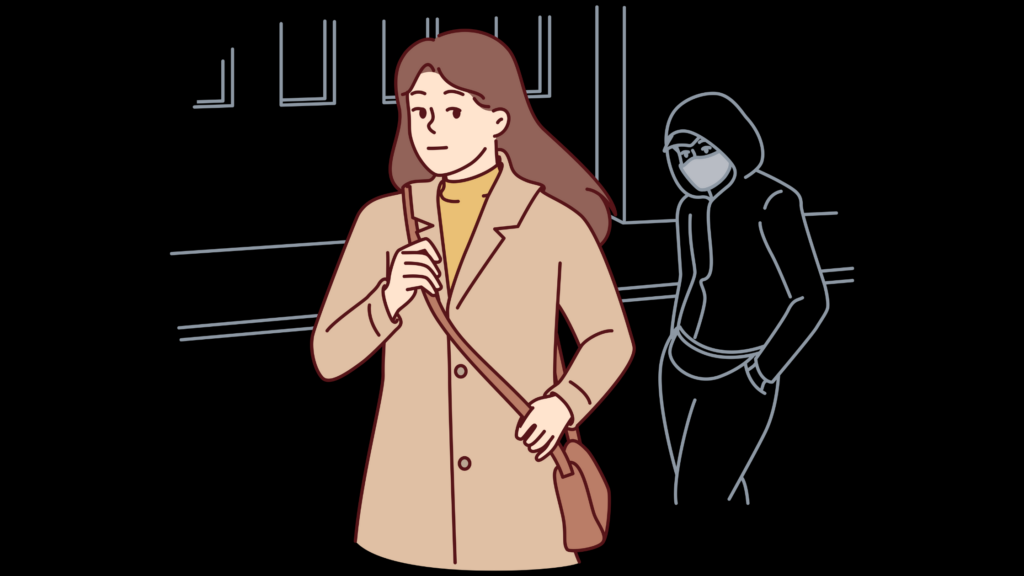Stalking: Know the Signs and How to Report It

Do you think you’re being stalked? Don’t ignore the signs. Learn how to recognise stalking behaviour and what you can do to stay safe.
What is stalking?
Stalking is when someone repeatedly does things that make you feel scared or worried. It’s not just one annoying thing but a pattern of actions that keep happening.
Even if you tell them to stop, they continue, trying to control or watch you, either by following you, messaging you, watching you online, or sending unwanted things.
If someone’s actions are making you feel afraid or upset over and over, that’s stalking, and it’s important to tell someone you trust.
Types of stalking
In-person stalking involves physical actions that make you feel unsafe. This may include:
- Following you while you travel home or to other locations
- Repeatedly appearing at places you visit, such as your school, workplace, or social venues
- Sending you unwanted gifts, notes, or other forms of contact
Cyberstalking happens online and can be equally distressing. It involves using technology to harass or monitor you, making you feel like you’re constantly being watched or bothered. Examples of cyberstalking include:
- Sending frequent unwanted messages or comments on social media platforms
- Creating fake online profiles to harass or impersonate you
- Tracking your location through apps or social media
- Sharing private images or videos without your permission
- Accessing your online accounts without your permission
- Using spyware or other software to monitor your online activity
The impact of stalking
Stalking can cause a lot of strong and upsetting feelings.
You might feel scared and worried all the time, like you can’t relax. You could feel very lonely, like you’re by yourself and no one gets it. It’s common to feel like you can’t do anything to stop what’s happening. You might be confused, wondering why this is happening to you or get really angry and find it hard to trust people anymore. It can feel like someone has taken away your safe space and privacy.
Stalking can also impact your physical health from all the stress. It can make it hard to sleep or focus, and even give you headaches or stomachaches.
The Law on stalking
In the UK, stalking is against the law. There are laws like the Protection from Harassment Act 1997 and the Criminal Justice and Courts Act 2015 that are there to keep you safe from stalking.
If you’re under 18, you’re also protected by the United Nations Convention on the Rights of the Child (UNCRC), which says you should be safe from all kinds of harm, including stalking.
If you’re 18 or older, you have the full right to use the law to protect yourself. The police treat stalking very seriously and can help keep you safe.
Find out more about your rights.
What should I do if someone is stalking me?
If someone is stalking you, it’s really important to do something about it. Tell someone you trust, like a family member, teacher, or youth worker. Write down every time it happens, with dates, times, and any proof you have. This will help you to monitor it and be evidence.
You contact the National Stalking Helpline, run by the Suzy Lamplugh Trust. Call 0808 802 0300. Check their website for opening hours.
You could also call the police to report stalking and get help. Call 999 for emergencies or 101 for non-emergencies.
If you’re not sure who to go to for help or you need someone to talk with, you can contact Meic every day from 8 am to midnight. Chat with us by phone, WhatsApp message, text, or online chat. We can listen to you non-judgmentally and can signpost you to the best support service for you.
























